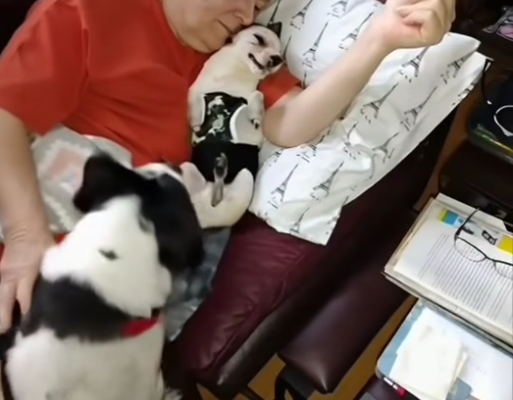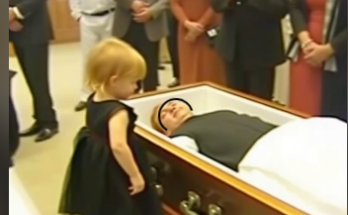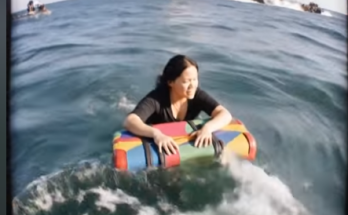
THE DOG REFUSED TO LEAVE HER SIDE—THEN I SAW HER HAND
Each day at exactly 4 PM, my grandmother would settle into her favorite recliner, accompanied by her two dogs—Coco, the elderly Chihuahua, and Max, the ever-loyal Shih Tzu.
She always claimed the rhythm of her breath comforted them. That afternoon, I walked in as usual, expecting the familiar sound of her gentle humming.

But the atmosphere was unnervingly quiet. She lay there, eyes closed, a slight smile on her face. Coco was pressed tightly against her neck, and Max sat still, simply staring at her.
“Grandma?” I called out, but there was no answer. I reached out to touch her shoulder; her skin felt warm, yet her hand trembled faintly.
Coco growled low in his chest, a protective sound that sent a chill down my spine. And then I noticed the empty pill bottle beside her. A wave of panic hit me.
“Grandma!” I shouted, shaking her, but she didn’t stir. I called 911 and, in a rush of panic, let Max outside. He barked furiously, as if trying to do something to help.
When the paramedics arrived, Coco refused to leave her chest. They worked swiftly, asking questions while I held him close, trying to soothe him.
At the hospital, the doctor reassured me that she was stable, but emotionally, it was clear she was in pain. “Has she been struggling?” he asked. I nodded, remembering how quiet and withdrawn she’d seemed lately.
“She’ll need support,” he said gently. “This cannot happen again.” The following morning, Grandma looked so small and fragile in her hospital bed, a stark contrast to the vibrant woman she once was.
Her eyes lit up when she saw me—or rather, Coco, who jumped up onto the bed and nestled beside her. “I’m so sorry,” I whispered, tears filling my eyes. “I should’ve noticed sooner.”

“Don’t you worry, child,” she replied softly, her voice weak. “This isn’t your cross to bear.” “Why didn’t you ask for help?” I asked, my voice cracking.
She exhaled slowly and answered, “Losing your grandpa left a hole in my heart. Sometimes, when the pain is too much to bear, you start thinking it’d be easier if you weren’t around.”
Her honesty stunned me, but I knew she needed more than just comfort. “So, what happens now?” I asked, trying to keep my voice steady. She smiled faintly.
“Now, I learn to live again—with your help… and theirs,” she said, nodding to the dogs. In the weeks that followed, Grandma began therapy and joined activities like game nights and art classes.
Little by little, she started to find her spark again, aided by the unwavering loyalty of Coco and Max. One evening, as we watched the sun set, Grandma squeezed my hand.
“Those dogs saved me twice,” she said quietly. “Once by alerting you, and once by reminding me what unconditional love really feels like.” “I never gave up on you,” I replied softly.
Looking back now, I’ve come to understand that depression doesn’t make its presence known—it creeps in, silently.
But love has a way of showing up, often in the most unexpected forms—sometimes through a stubborn dog or the bravery to ask for help.



